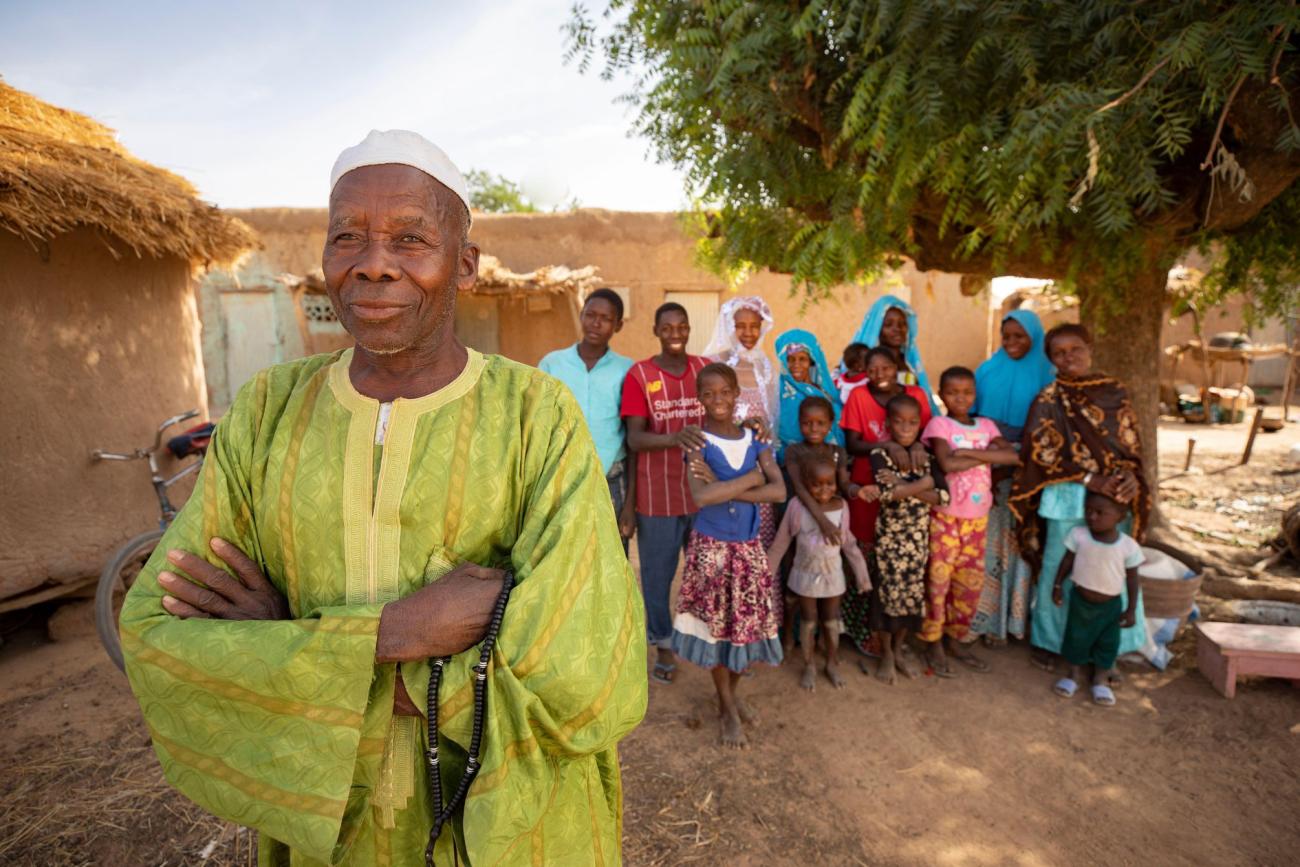Practice, Perspective, Persistence: Understanding Polygamy in Bamako
Bruce Whitehouse studies polygamy in Mali for a decade and publishes a book on why it has endured in West Africa
Eighty years ago, scholars predicted that polygamy would rapidly decline in urban settings. They argued that the economic incentive would preclude the necessity of financial burden on the primary income earner. Yet, polygamy has endured, particularly in West Africa.
Bruce Whitehouse explores why in his book Enduring Polygamy: Plural Marriage and Social Change in an African Metropolis. A leading scholar on Mali, Whitehouse began researching marriage in Bamako, the capital of Mali, in 2008. He was able to bring Lehigh student researchers with him in 2010 and 2011, and continued his field work with a Fulbright grant in 2011 and 2012.
Whitehouse’s first encounter with polygamy in Mali occurred when he joined the Peace Corps prior to his anthropology career. “So much of what I learned, and so much of what is still vital to my understanding of Mali today,” he says, “was formed 25 years ago when I was a Peace Corps Volunteer and living in a rural community,”says Whitehouse, associate professor of anthropology in the Sociology and Anthropology department. During his three years as a volunteer, he was connected with a host family whose patriarch had three wives. It was his observations and his everyday interactions with people in polygamous households that sparked his curiosity.
When Whitehouse began his research, he aimed to understand why polygamous marriage persisted as a cultural institution and how functional it was in a large modern city. However, he soon realized he needed to consider more closely the question of for whom polygamous marriage worked and for whom it didn’t. “It can serve the interest of some while it is actively not serving the interest of others,” he says, “and that tends to break down on gender, but not always.”
Whitehouse worked with a small team of researchers to interview 100 men and women—half of whom were in polygamous marriages and half in monogamous marriages. Whitehouse and his team also conducted focus group discussions as part of their ethnographic research. More importantly, Whitehouse emphasized the value of observation. “You have to spend a long time embedded in a community to start to notice patterns and start to notice when the things that people say diverge from the things that they're actually doing,” he notes.
For women, it didn’t necessarily matter if they were in a monogamous marriage because they knew that their husband could take another wife at any time. However, the decision to take another wife wasn’t always the husband’s alone. In West Africa, one’s choice of spouse is not just about one’s individual preferences. Often, parents and extended family members arrange marriages to benefit the individuals and the communities to which they belong.
Despite Whitehouse’s belief that everyone deserves the right to individual choice, an entire generation of elders in Mali doesn’t share this perspective. “I definitely have a lot more reservations about this question of whether any of us is best qualified, when we're young and single, to know who's the best partner going to be for life,” he admits.
“I learned through the course of the research, and particularly the writing of it, to share that understanding of marriage, not as an outgrowth of individual level preferences, but as kind of a manifestation of community standards.”

Whitehouse also spent considerable time analyzing Bamako marriage records for patterns. “One of the really interesting patterns I noticed was this persistent age gap,” he says. “Men are much older than their wives when they get married. The average was about nine years, which is one of the widest age gaps in the world.”
Part of this is cultural, Whitehouse explains, but it has a lot more to do with economics. Men aren’t ready to marry and support a household until their late twenties or thirties. “And it hasn't always been that way,” he says. “That gap may have widened over time because of the economic precarity problem.”
After an insurgency in January 2012, Whitehouse explains, “Mali went from being a very peaceful, boring place that never gets written about to the type of place that gets global attention for all the wrong reasons, just in a matter of weeks.”
His next project is an examination of the conflict that emerged 12 years ago. “It has only intensified over time,” he says, “and has become the scene of superpower geopolitical rivalry.”
Whitehouse was able to return to Bamako, Mali in early 2020 to follow up on his findings and touch base with those he interviewed. “I can't pretend that the observations that I made between 2010 and 2020 are representative of what would've been a decade before or will be a decade later.” For this reason, Whitehouse decided to write the book in the past tense, instead of the ethnographic present, to frame the book as a bracketing of the 2010s.
“There seems to be a kind of consensus for people of all backgrounds and genders that the right to practice polygamy exists. The only question is, how should it be practiced?”

